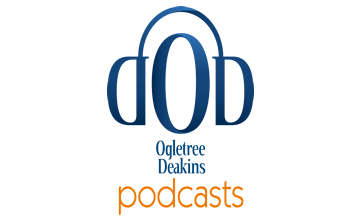Podcast: Play in new window | Download (Duration: 13:13 — 18.2MB) | Embed
Subscribe: Apple Podcasts | Spotify | TuneIn | More
In this podcast recorded at Ogletree’s recent Corporate Labor and Employment Counsel Exclusive® seminar, Kristin Higgins (office managing shareholder, Dallas) and Jenn Betts (office managing shareholder, Pittsburgh) discuss the use of artificial intelligence (AI) by employers, including in hiring and recruiting. Jenn, who is co-chair of Ogletree Deakins’ Technology Practice Group, and Kristin provide an overview of California’s newly effective regulations prohibiting employers from using an “automated decision system” to discriminate against applicants or employees on a basis protected by the California Fair Employment and Housing Act. Kristin offers an overview of the consumer-focused Texas Responsible Artificial Intelligence Governance Act, which goes into effect in January. They conclude the discussion with pointers for employers, such as forming workgroups to evaluate new AI tools before deploying them in the workplace.
